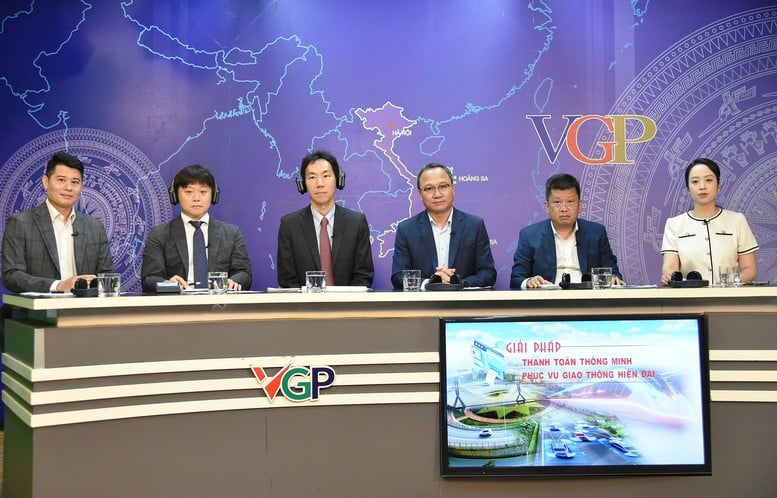
Seminar "Smart payment solutions for modern transportation" organized by the Government Electronic Information Portal on May 20, in Hanoi - Photo: VGP/Duong Tuan
This is the content discussed by delegates at the seminar "Smart payment solutions for modern transportation" organized by the Government Electronic Information Portal on May 20, in Hanoi.
Determined to build a smart ticket system
From the perspective of the management agency, Mr. Do Viet Hai - Deputy Director of the Hanoi Department of Construction emphasized: Hanoi has set an early goal of building a smart ticket card system, based on actual needs and cashless policies in public transport. Not only connecting the inner city, this system also has the ability to connect with other services such as automatic toll collection, parking lots and future types of transport.
As one of the pioneering localities, Hanoi is gradually realizing the interconnected electronic ticket system.
To do this, Hanoi has issued many specific decisions, notably Decision 3680/QD-UBND (July 2024) and Decision 6936/QD-UBND approving the Smart Traffic Project. Accordingly, the city will officially launch the interoperable ticket system in the form of IT service rental from September 2, 2025.
Not only that, the new ticket card system applies VCCS security standards - a set of domestic chip card standards supported by NAPAS. Thanks to that, bank cards, e-wallets, and even CCCDs can be integrated into the ticket system, making Hanoi a model smart urban area.
According to Mr. Do Viet Hai, the smart ticket system not only collects money but is also a large "data mine". "Digital resources are increasingly important. Data from public transport can serve urban planning, economics , and even security and order," said Mr. Do Viet Hai.
However, according to Mr. Hai, there are still two big challenges: changing people's habits, especially the elderly, and creating jobs for about 4,000 manual ticket sellers on buses. "We believe that when operating effectively, the system will not only serve public transport but also provide valuable data for socio-economic development," said Mr. Do Viet Hai.
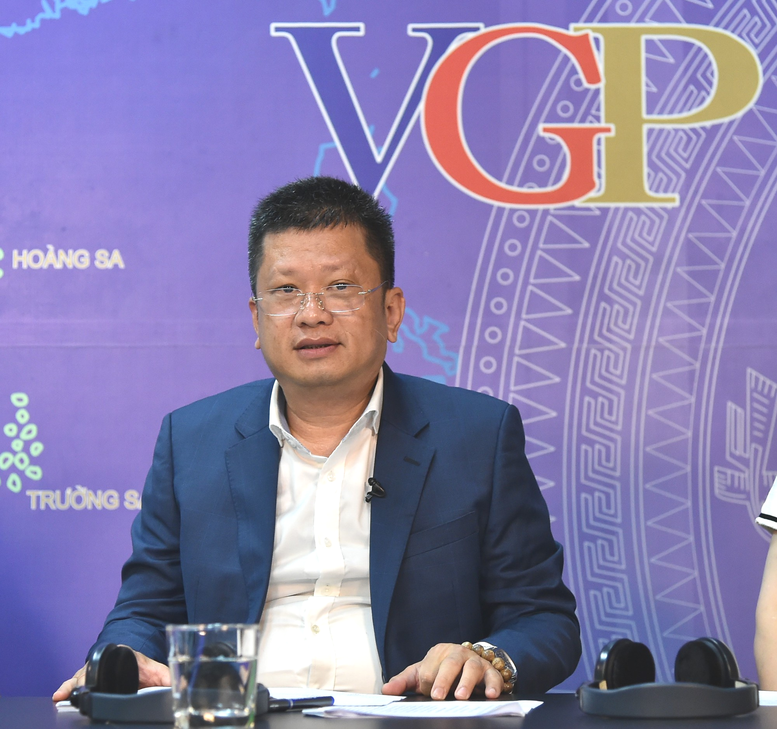
Mr. Do Viet Hai - Deputy Director of Hanoi Department of Construction - Photo: VGP/Duong Tuan
In the role of a national retail payment infrastructure provider, Mr. Nguyen Hoang Long, Deputy General Director of the National Payment Joint Stock Company (NAPAS), said: In Ho Chi Minh City, Metro No. 1 has deployed a cashless payment model in coordination with NAPAS and international financial institutions such as Visa and Mastercard. On its part, NAPAS has fully prepared the technical infrastructure to integrate the automatic ticket system. This helps people use bank cards, both domestic and international, to take the metro, without needing additional specialized cards.
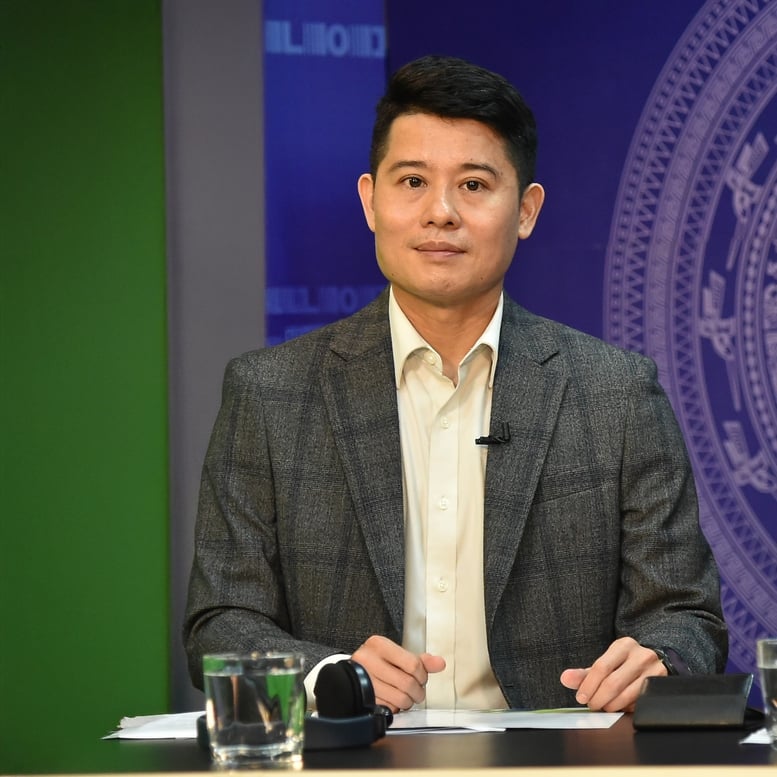
Mr. Nguyen Hoang Long, Deputy General Director of National Payment Joint Stock Company (NAPAS) - Photo: VGP/Duong Tuan
NAPAS leaders said: "In fact, the preparation time is long but the implementation is very fast, because the actual connection between NAPAS and automatic payment in HCMC Metro was only implemented in 20 days because things like technical standards have been carefully prepared, just need to unify and the whole system will run smoothly. I believe that the goal we can move towards is not only using bank cards to pay for metro but can expand to other forms" emphasized Mr. Nguyen Hoang Long.
"NAPAS has tested payment by bank card for the Vinbus system in Hanoi and at airports, proving the feasibility of the model," said Mr. Nguyen Hoang Long.
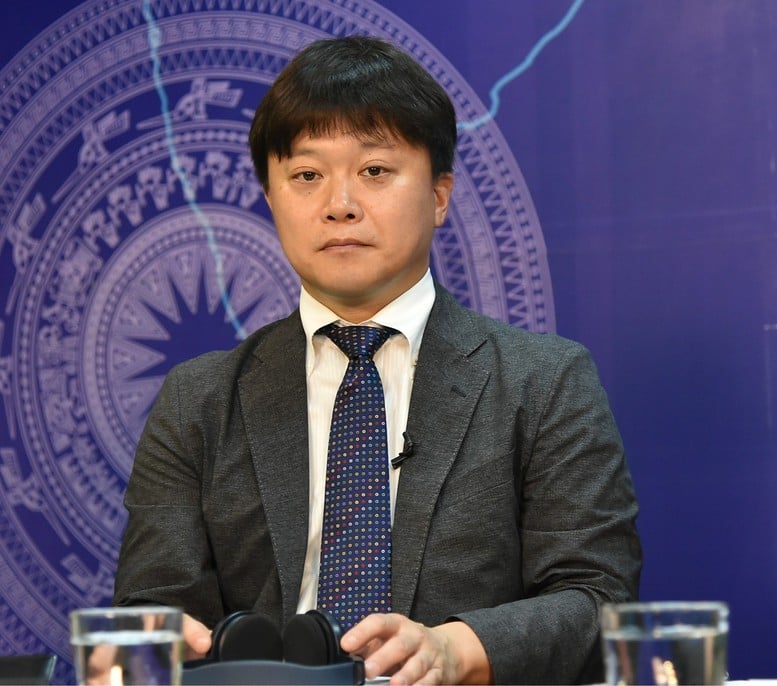
Mr. Satoru Horiuchi – General Director of Tokyo Metro Vietnam - Photo: VGP/Duong Tuan
International experience and recommendations on policy coordination
Experience from Japan shows that the process of connecting electronic tickets is a long journey that requires perseverance and close coordination. Mr. Satoru Horiuchi - General Director of Tokyo Metro Vietnam said: In Japan, initially, the railway lines also operated independently. Since 2000, the country began to synchronize the prepaid card system and by 2013, all IC cards such as Suica and Pasmo could be used nationwide, not only in transportation but also in shopping and daily life.
According to Mr. Horiuchi, to do that, Japan has established research groups such as "Passnet window" and "Pasmo research group" to unify standards and implementation methods. From there, he proposed that Vietnam also needs a strong coordinating organization to lead the process of standardization and unification of techniques, policies and data among related entities.
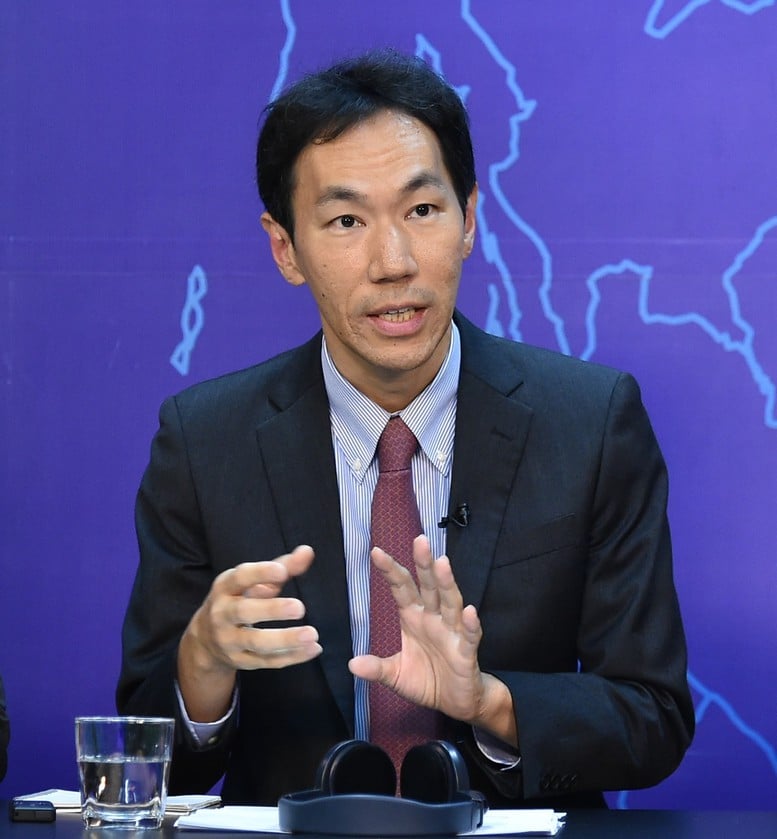
Mr. Fukuda Chihiro - Deputy Chief Representative of JICA in Vietnam - Photo: VGP/Duong Tuan
From a macro perspective, Mr. Fukuda Chihiro - Deputy Chief Representative of Japan International Cooperation Agency (JICA) in Vietnam said: JICA has been supporting the construction of urban railway systems in countries such as Thailand, Philippines, Indonesia, Bangladesh. In Vietnam, with the project in Ho Chi Minh City, the automatic fare collection system (AFC) has been deployed.
JICA representative emphasized 3 factors that the State needs to implement to deploy AFC.
Firstly, it is necessary to deploy a system that can integrate not only railways but also parking lots or shops. Thus, from the beginning, the management agency needs to have a direction to build a system that can operate interoperably and build a unified set of standards.
Second is information security, the AFC system processes passengers' personal data so it is imperative to have strong enough security measures to prevent fraud and protect personal information, the State needs to issue legal documents and regulations to do this.
Third is financial and policy support. To implement the AFC system, there will be an initial cost. Therefore, it should not be completely entrusted to enterprises to manage and operate, but the State needs to support financially and in terms of policy to ensure the effectiveness and promote the popularization of this AFC system.
In addition, Mr. Fukuda Chihiro also mentioned the multi-modal connection solution: in Ho Chi Minh City, the bus system is being developed to connect metro stations, creating convenience in travel, this is a model that Hanoi should learn.
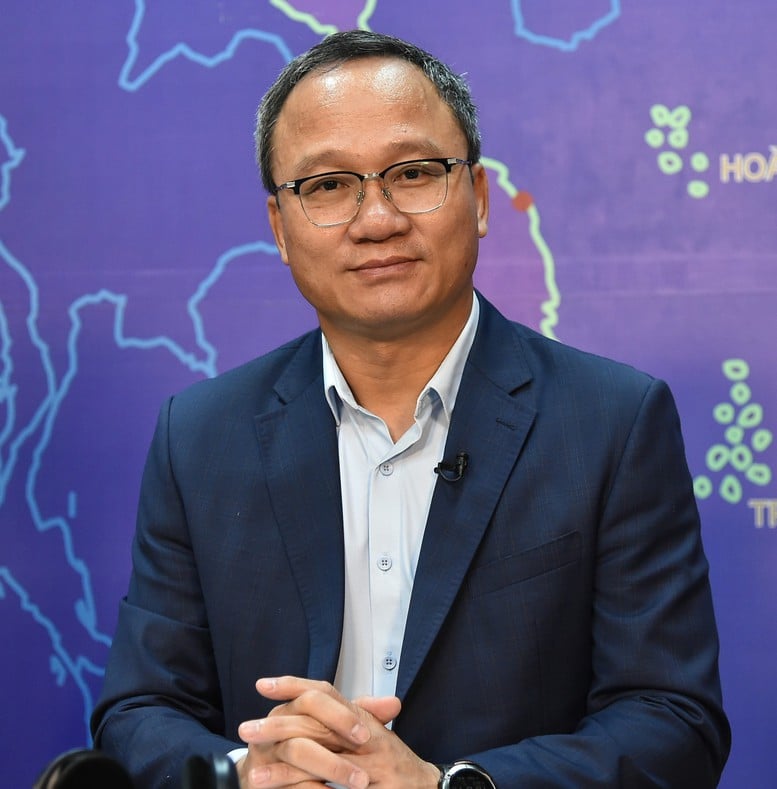
Mr. Khuat Viet Hung - Chairman of the Board of Directors of Hanoi Metro
Mr. Khuat Viet Hung - Chairman of the Board of Directors of Hanoi Metro frankly shared about the current situation: That is, the two metro lines in Hanoi have separate ticket systems, people still have to use cash to buy tickets or go to the station. Therefore, connecting the lines and connecting smart payments is an urgent requirement.
Emphasizing the clear division of roles, Mr. Khuat Viet Hung continued to point out the need for decentralization between state management agencies and enterprises.
Each side must have a clear role: businesses must proactively operate their systems, the State takes care of coordination, policies, and data. The important thing is to ensure stability even when the common interconnected system has problems.
"In my opinion, the most important thing for a successful implementation is implementation. For example, NAPAS has already prepared a payment system, the only thing that needs to be done now is to deploy a connection to the Metro system to ensure that the Department of Construction's common system can operate smoothly with our system. We also have to design our system to connect with the Department of Construction's system. This issue is implemented by both sides. The payment platforms are ready, the tools are complete, we just need to do it," Mr. Khuat Viet Hung emphasized.
Mr. Nguyen Hoang Long, Deputy General Director of NAPAS emphasized: Digitalization and digital transformation is a common policy of the Government. In payment, we have completed the implementation of digital payment.
"Nowadays, everyone can see that they can buy a bunch of vegetables at the market by scanning a QR code, or pay for a cup of coffee by scanning it with their phone. So there is no reason why in the future we cannot apply such modern and fast payment methods on modern public transport infrastructure such as the metro infrastructure. In fact, people only need a phone with a bank connection or VNeID to be able to take the metro. Cashless payment has become a habit, we need to take advantage of it to speed up the implementation of the interoperable ticket system," Mr. Nguyen Hoang Long emphasized.
In recent years, the Vietnamese Government has introduced many important policies and strategies to promote and transform towards a smart transport system, especially in the field of public transport. One of the important steps is the implementation of an automatic ticket card system for public transport, especially in metro line 01 Ben Thanh - Suoi Tien in Ho Chi Minh City. This is the first time that people can use different ticket cards such as monthly tickets, bank cards, and e-wallet accounts to use metro services automatically without manual ticket collection. Thereby, helping to reduce congestion at ticket counters and ticket gates and create a more convenient experience for passengers.
Huy Thang
Source: https://baochinhphu.vn/huong-toi-he-thong-ve-lien-thong-toan-quoc-dot-pha-trong-giao-thong-cong-cong-102250520161609913.htm







![[Photo] Prime Minister Pham Minh Chinh chairs the first meeting of the Central Steering Committee on housing policy and real estate market](https://vphoto.vietnam.vn/thumb/1200x675/vietnam/resource/IMAGE/2025/9/22/c0f42b88c6284975b4bcfcf5b17656e7)

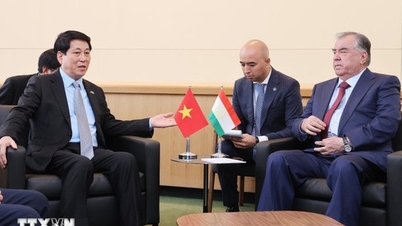
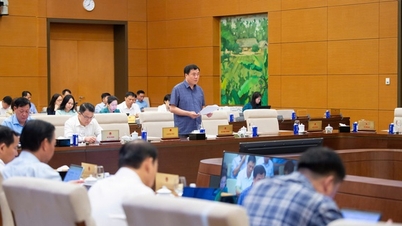








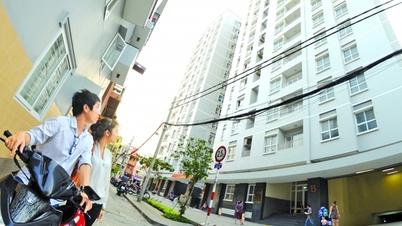





![[Photo] General Secretary To Lam presents the First Class Labor Medal to the Vietnam National Energy and Industry Group](https://vphoto.vietnam.vn/thumb/1200x675/vietnam/resource/IMAGE/2025/9/21/0ad2d50e1c274a55a3736500c5f262e5)






























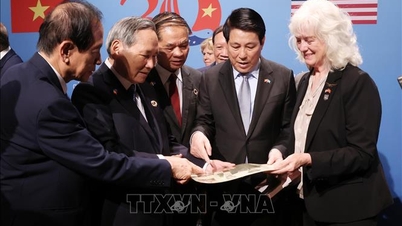










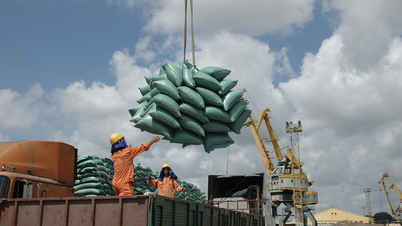








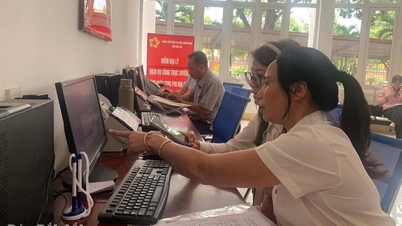















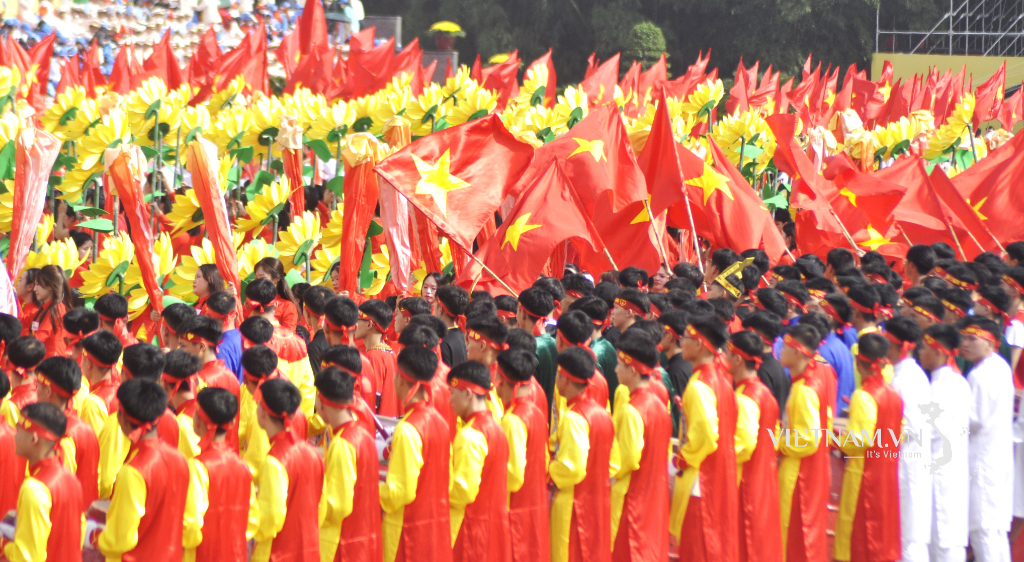


Comment (0)